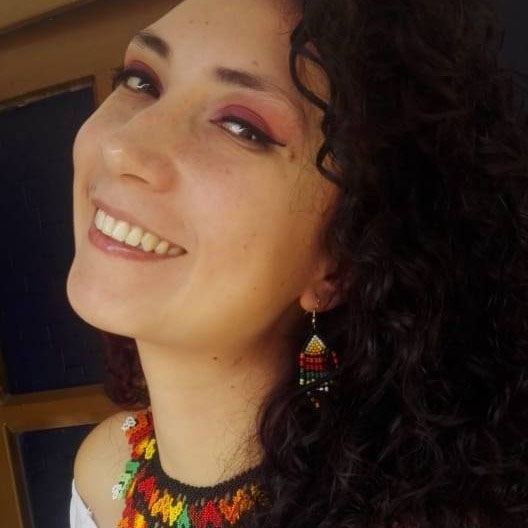No es un secreto que estamos enfrentando una crisis de civilización, que pone en peligro no sólo a nuestra especie sino a todos los seres vivos de nuestro planeta: los océanos, los ríos, los suelos, el cielo, el aire que respiramos. Porque para todos nosotros en las Américas, estos elementos son la vida y permiten la vida. Los ritmos de destrucción se aceleran, y carecen de todo sentido de humanidad y de consideración por la historia.
Se ha establecido que cuanto mayor es el número de seres humanos en nuestro planeta, mayor es su consumo, entonces mayor es el deterioro de nuestros ecosistemas. Para establecer una relación positiva entre los seres humanos y los ecosistemas, muchos han señalado el “problema” de la población. Se han hecho llamamientos para disminuir las tasas de natalidad, especialmente entre los latinoamericanos. Parecía haber un énfasis particular en detener el crecimiento de la población en países con grandes extensiones de pobreza, donde reina la desigualdad y la injusticia social, como si el problema fuese “muy poco pan para tantas bocas”.
Una medida para “detener” el crecimiento demográfico es a través del empoderamiento de la mujer. Pero centrado meramente en la reproducción, ¿acaso comienza o termina aquí el empoderamiento de la mujer? ¿Por qué no hablar de la plena potenciación de nosotras las mujeres: en la economía, en la política, en la ciencia, en la conducción de la sociedad? Este es el discurso más amplio que muchos de nosotros ya perseguimos, aun cuando nos enfrentamos a constantes obstáculos del machismo y el patriarcado tan presentes en nuestras sociedades.
Ahora, si vamos a hablar de población, hablemos de ella, y hablemos también de consumo. Y preguntémonos qué sociedades: tienen el mayor nivel de consumo, y por qué? ¿Quiénes son los que producen para que otros puedan consumir? ¿Cómo producen? ¿A costa de qué y quiénes? ¿Quiénes son los responsables de la muerte de nuestros bosques, montañas y ríos? ¿Quiénes son los que imponen un modelo de desarrollo que saquea y pisotean la vida? No olvidemos cuantos han sido desaparecidos y asesinados por oponerse a estos modelos de desarrollo. ¿Qué pueblos sufren por estos modelos de desarrollo y quién se beneficia de ellos? ¿Somos cómplices? Hablemos de los ecosistemas y de la sociedad de consumo, de los ecosistemas y de la explotación, hablemos de nuestro viaje como especie en una pequeña porción de la historia de la vida en nuestro planeta. Año tras año leemos y escuchamos “hoy consumimos todos los recursos del planeta que deberían haberse consumido en un año”, y las fechas se acercan, el reloj cada 365 o 366 días nos mostrará cómo la historia se repite, convirtiéndose casi en un teatro absurdo. Sin embargo, y contrariamente a los cataclísmicos discursos que imponen la visión de una historia sin esperanza, creo que siempre llegaremos a tiempo para hablar de la salud de nuestro planeta, para restaurar, proteger y conservar nuestros ecosistemas llevándonos inexorablemente a caminar hacia un proyecto de humanidad democrática, de democracia precisa y efectiva donde todos encajemos, donde vivir no sea una sentencia, donde haya posibilidades de existir, donde haya posibilidades materiales y espirituales para desarrollar nuestras potencialidades como individuos y comunidades.
Organizaciones han mencionado que cuanto mayor sea el número de personas, menor será la porción del planeta para cada quien. Sin embargo, reconozcamos primero la realidad material y espiritual de nuestros pueblos como el Abya Yala – así era llamada Ámerica antes del arribo de los españoles-. Nuestros valles y montañas florecen y dan fruto cada día, y no somos pobres porque queremos ser, como muchos señalan, especialmente las más distinguidas aristocracias criollas. Albergamos el mayor pulmón del mundo, “somos la columna vertebral del planeta”, ¡somos el hogar de la mayor biodiversidad del mundo! Este es un llamado desde las tierras de la raza cósmica, como diría Vasconcelos, a todos los rincones del planeta azul para abrir nuestros ojos y nuestros corazones. Aquí defendemos la vida porque tenemos la convicción de que hay lugar para todos nosotros con dignidad. Si dudan, pregúntense quiénes fueron Berta Cáceres en Honduras y Cristina Bautista en el Cauca (Colombia). ¿Quiénes son Francia Márquez e Isabel Zuleta (colombianas)? Podrían continuar con la lista de hombres y mujeres que con amor y coraje defienden los territorios. Los pueblos de Nuestra América se enfrentan a un mortífero intercambio de vida por vida, dolor y sangre, pero también, sabemos que a pesar de nuestros dolores, la esperanza camina. Convirtámonos en garantes de la defensa de los territorios, que al final es la defensa de la vida, ese es el papel que debemos asumir como sociedad global.
– Angie Nathalia Romero Gomez

